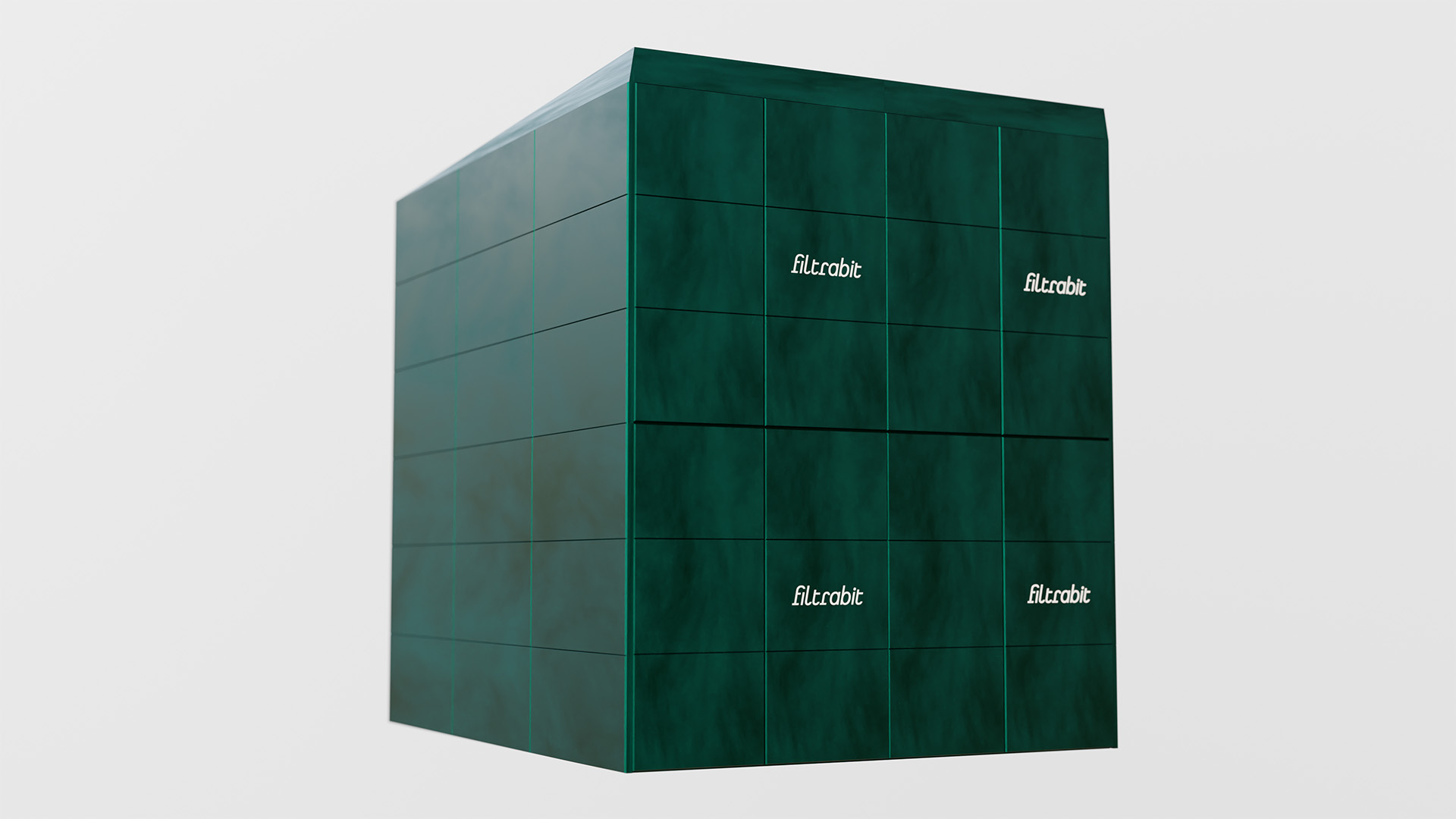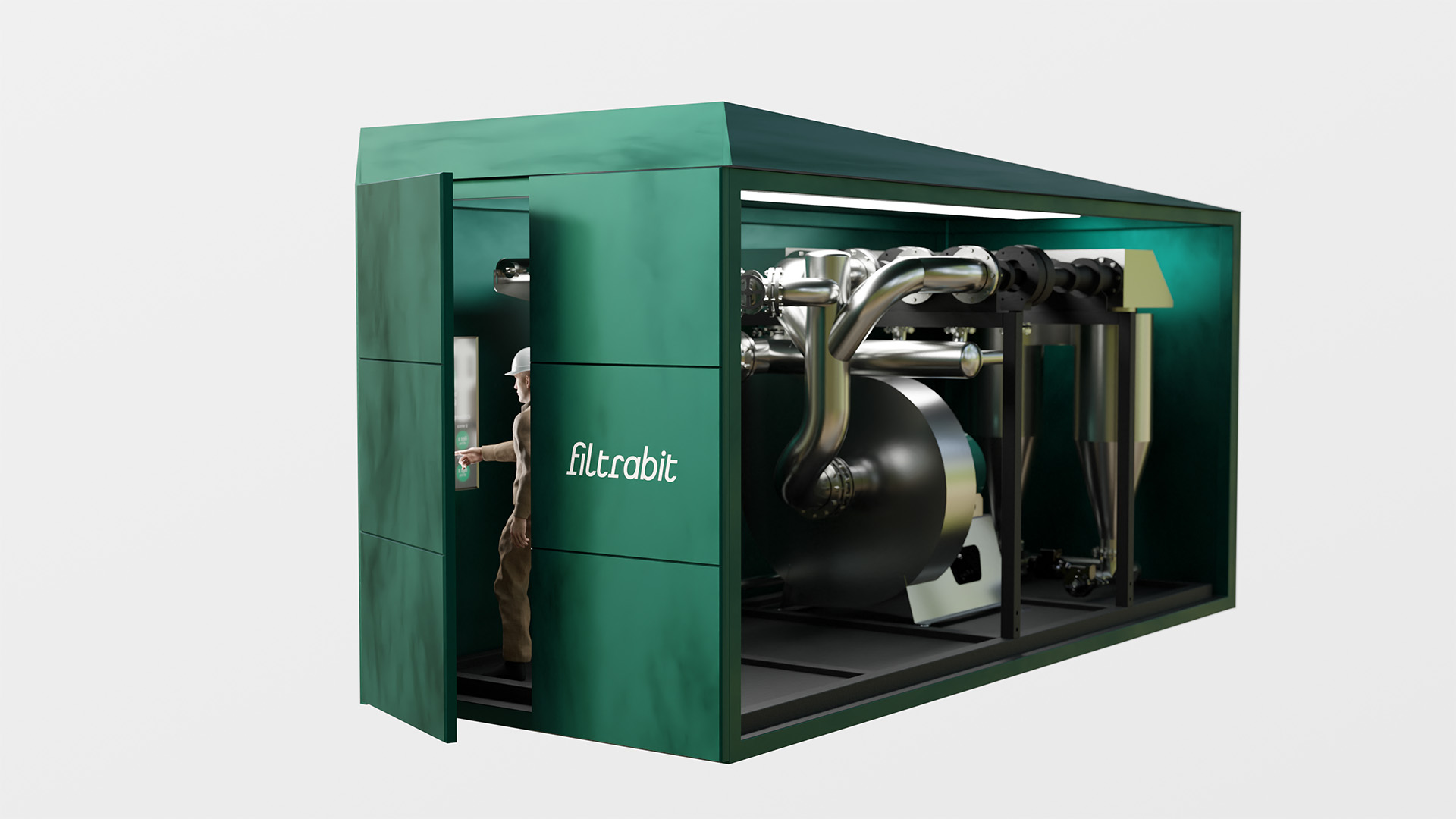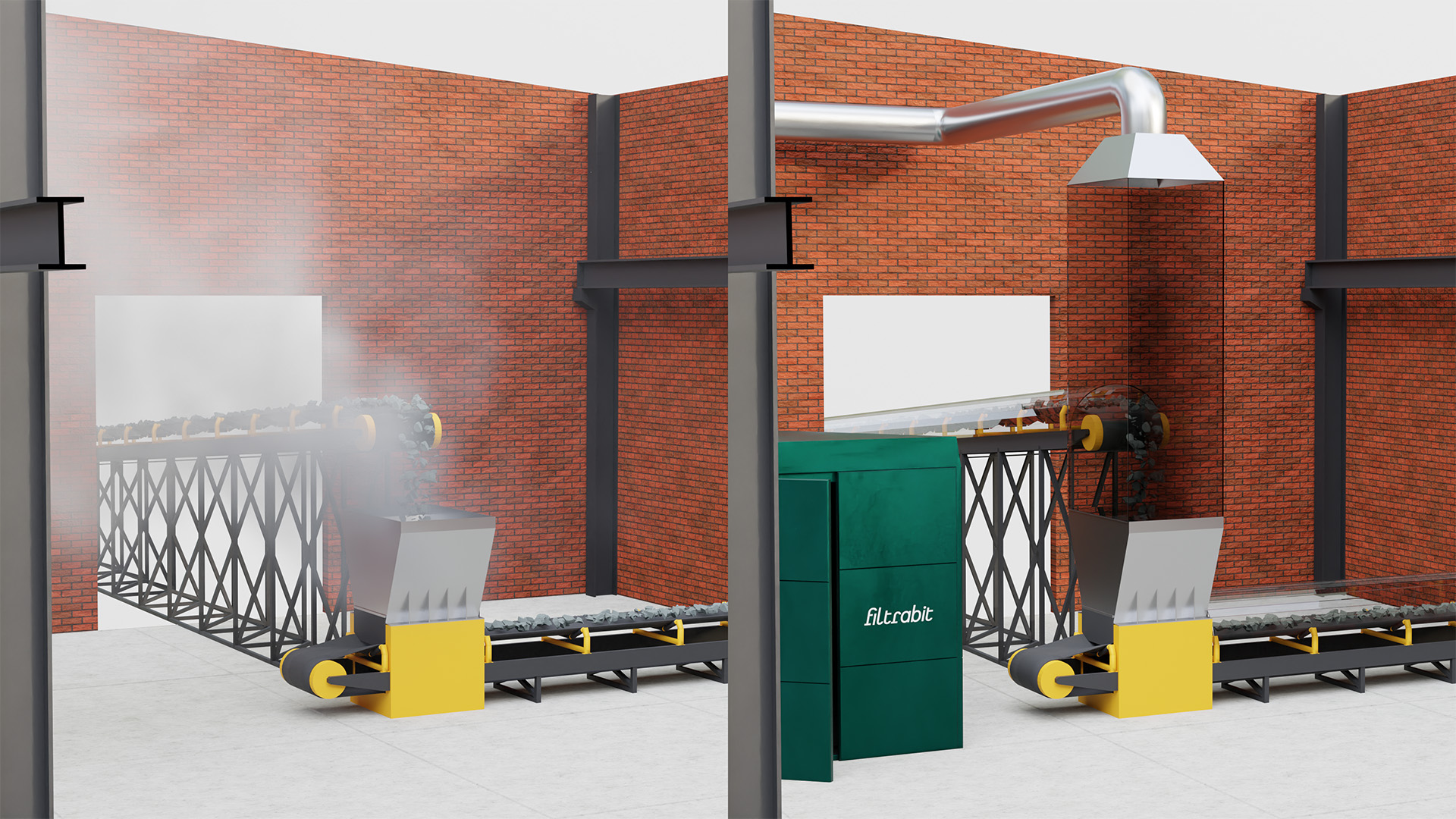Flow-dynamic dust separation
Filtrabit’s patented technology enables industrial clients to reduce their PM2.5 emissions to meet strict regulation and health standards.
Filtrabit’s solution is based on flow dynamics. The separation core at the heart of the innovation effectively separates the dust from the air and allows for the dust extraction equipment to fit into a modular unit.
The intake air is directed and accelerated in a way that causes the dust particles to separate into a highly condensed side stream, where they can be captured without the large surface area of filter material required by traditional systems.
The system operates at a steady performance level and the captured dust is continuously discharged into a container, ready for immediate reuse as valuable raw material, as opposed to mixing with other types of dust in a centralized system.
The modular units are serially manufactured and portable, allowing for exact tailoring and retrofitting of capacity without the need for building permits. Installation can be done in one day when the necessary ducting is in place.
Watch the videos below for a quick conceptual view of the technology and a look inside the assembly and operation of a unit.
Material efficiency
Separated material
Is recovered in a continuous stream and ready for immediate reuse.
Environmental benefits
From reduced need for mining, processing and transporting virgin resources.
Economic benefits
From recapturing valuable raw materials otherwise wasted.
Modular design
- Superior logistics and installation speed: the unit itself can be connected in a day when ducting is complete.
- Flexible placement: no building permit required. Industrially manufactured, serially produced.
- More units can be installed parallel for just the right capacity.


Smart solution
- The device can be fitted with numerous sensors according to the customer’s specific data needs.
- This data can be used to monitor changes to the production process, helping detect abnormalities and identify maintenance needs.
Brochure
For a more detailed view on the technology, please refer to the product brochure from the link below.
Brochure

Industries
Flow-dynamic dust separation is the new standard for industries that generate heavy, dry and fine dust. Operations that include crushing, sieving and transporting such materials on conveyor belts are particularly great beneficiaries of the technology.
Examples of customers include steel mills, foundries, quarries, mining and ore processing operations.
Steel production
Steel plants include numerous sources of dust, such as furnace dust and storage yard dust from handling raw materials and slag. Coking, sintering and pelletizing plants are prime examples of dust generating sites where flow-dynamic dust separation can provide order-of-magnitude level improvements.
Foundries
Sand handling, mold crushing and surface treatment of the molded components are common problem areas for dust control in foundries. Flow-dynamic dust separation can make a substantial difference in the working conditions and environmental impact of these facilities.
Mining and ore processing
Production of non-ferrous metals like copper and zinc also includes many operations that generate heavy dust. Handling of the ore and other raw materials requires crushing, sieving and conveying at various points.
Quarrying
Crushing and sieving are common operations and culprits for fugitive dust in quarries. Vulnerable conveyor transfer points are also ubiquitous.
